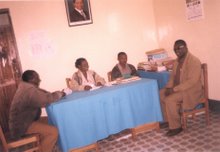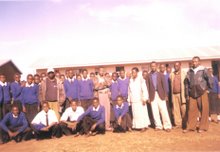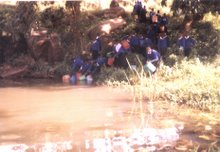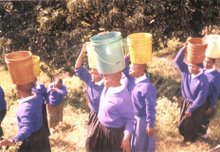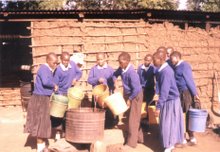
On Friday, March 7th the St. James Elementary School hosted a "Are You Smarter than a 5th Grader?" fund raising event. Despite the horrendous rain and cold, over 250 parents and children came out to support raising money for the drilling of a clean water well in Mbulu. All together the evening generated $1,833. What an incredible statement about the generosity of the community!
The energy was amazing. The joy contagious... The parents were very generous and I believe we raised enough money to drill a well!!!! It is so rewarding to think we will make a difference for an entire village...
I believe we raised enough money to drill a well!!!! It is so rewarding to think we will make a difference for an entire village...
The energy was amazing. The joy contagious... The parents were very generous and
 I believe we raised enough money to drill a well!!!! It is so rewarding to think we will make a difference for an entire village...
I believe we raised enough money to drill a well!!!! It is so rewarding to think we will make a difference for an entire village...
 Brands like Poland Spring, Arrowhead and Fiji are now making bottles with up to 30% less wasteful plastic -- you can be filled with water rather than guilt.
Brands like Poland Spring, Arrowhead and Fiji are now making bottles with up to 30% less wasteful plastic -- you can be filled with water rather than guilt.





